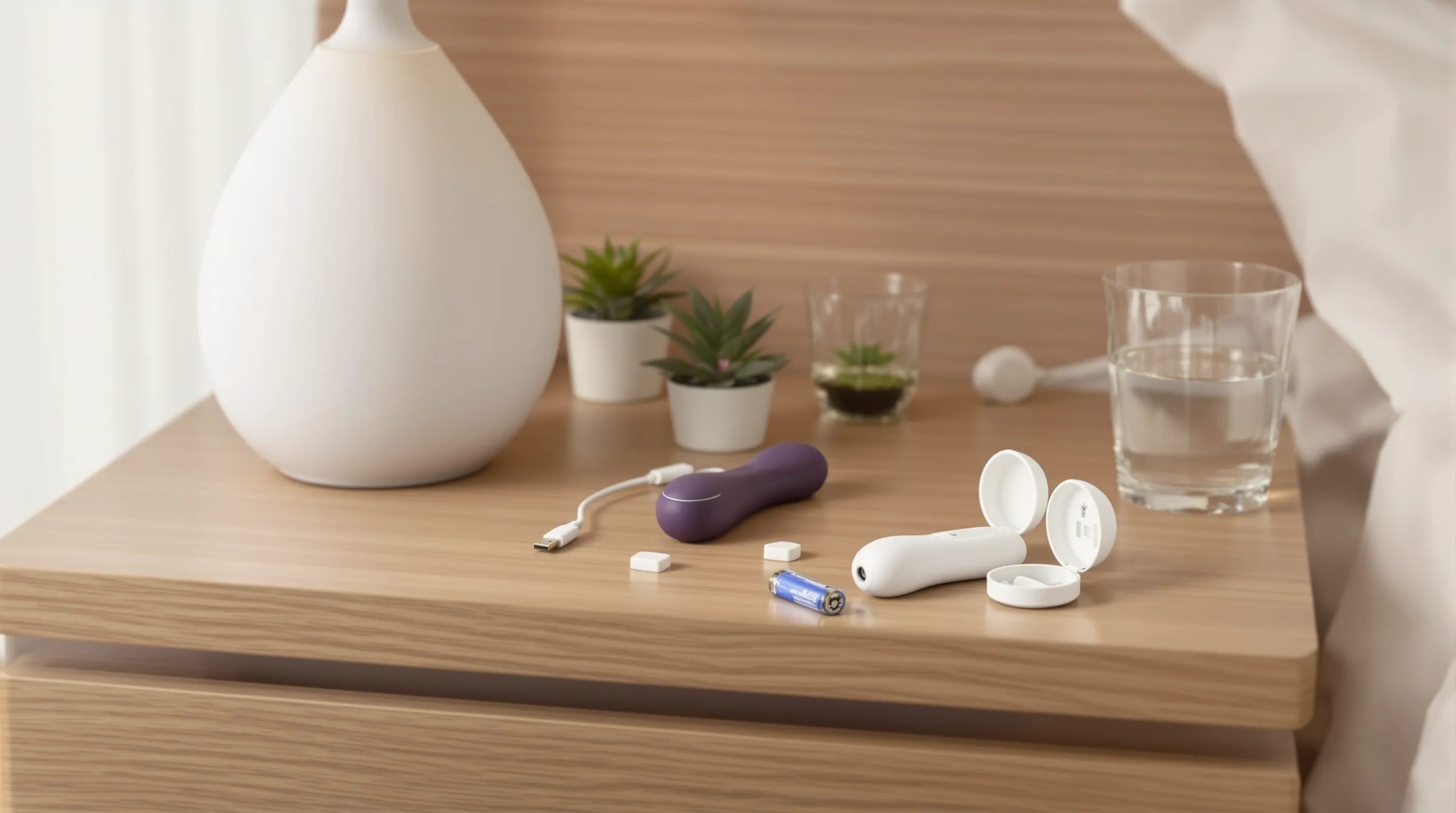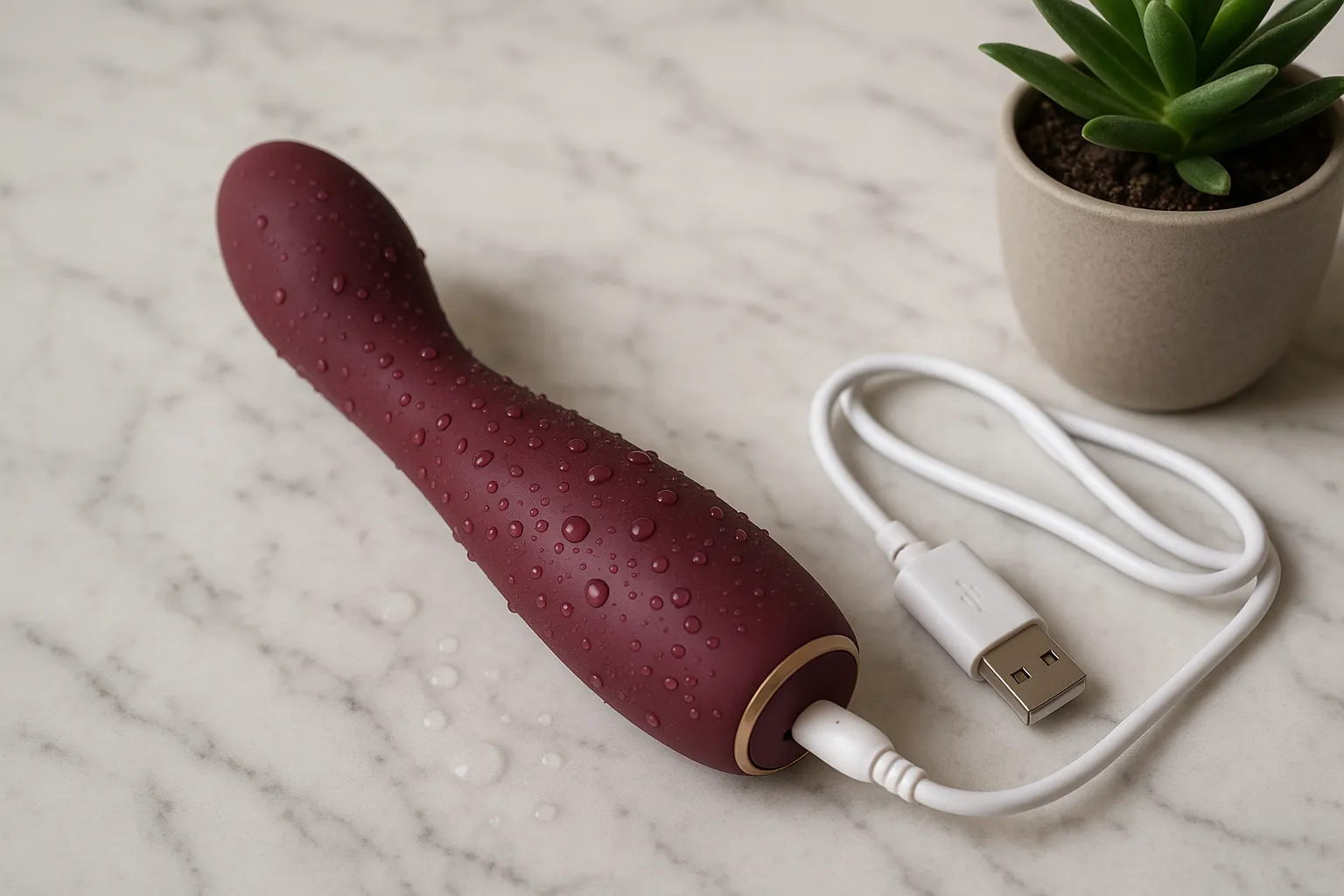
From the moment the first electric vibrator hit the market in 1899, power has been the beating heart of pleasure technology. Today most toys draw that power from either replaceable batteries or integrated rechargeable cells, and each option shapes the user experience in subtle but important ways. If you are weighing a new purchase—or simply want to extend the life of a favorite toy—understanding how energy choices influence intensity, convenience, cost, and sustainability will help you reach a more satisfying decision.
How Modern Vibrators Are Powered
At a technical level, every vibrator converts electrical energy into rapid mechanical oscillations via a small motor. The only practical difference lies in how that electricity is stored and delivered:
- Battery-operated models rely on disposable alkaline cells (AA, AAA, N) or occasionally specialty button batteries. When voltage drops, you pop the spent cells out and insert fresh ones.
- Rechargeable models contain a sealed lithium-ion or lithium-polymer battery that is topped up via USB cable, magnetic pin connector, or a charging cradle.
Both formats drive the same motors, so sensation quality ultimately depends on engineering choices such as motor size, gearing, and circuit design—not just the power source. Still, energy storage affects practical details that matter in real-world use.
Comparing Performance
| Factor | Rechargeable Vibrators | Battery-Operated Vibrators |
|---|---|---|
| Peak Intensity | Higher average torque and steadier voltage deliver deep rumbles even under pressure. | Fresh alkalines feel strong at first but intensity drops as voltage drains. |
| Runtime per Cycle | 60–180 minutes on a full charge, depending on motor size and pattern. | 30–90 minutes before noticeable fade; full replacement restores power. |
| Noise Level | Often quieter because designers can optimize circuitry around a stable voltage curve. | Can get louder as cells weaken and motor struggles to maintain speed. |
| Eco Footprint (study in Energy Policy, 2023) | Up to 85 % lower lifetime CO₂ emissions when charged with average European electricity mix. | Single-use alkaline production and disposal increase environmental burden. |
| Travel Readiness | No need to hunt for regional plug adapters—any USB port works. | Easy to pack spare batteries when wall outlets or USB ports are scarce. |
Cost of Ownership
The sticker price of a rechargeable toy is usually €10–€30 higher than a comparable battery unit, reflecting the internal cell and charging electronics. Yet long-term costs often favor rechargeables:
- A four-pack of premium alkaline AA batteries costs roughly €4 and delivers 4–6 hours of peak vibration. Using a wand twice a week for 20 minutes would require about 70 batteries per year—€70 in disposables.
- USB power costs pennies per year. Even if you replace the toy after three years, a rechargeable model typically saves €150–€200 over its lifespan.
That said, if you enjoy very occasional play or keep a vibe only for travel emergencies, the upfront savings of a battery model might outweigh running costs.
Convenience and User Experience
Rechargeable Upsides
- Plug-and-play charging: Most models use standard USB-C or magnetic pins, allowing you to top up from a phone charger, laptop, or power bank.
- Waterproofing: With no battery door, manufacturers can fully seal the housing. This enables IPX7 or higher ratings—safe for bath time fun.
- Consistent performance: A lithium-ion cell provides a flat discharge curve, meaning the last buzz before recharge feels almost as strong as the first.
Battery Model Advantages
- Instant energy swap: If power dies mid-session, pop in a new set and continue without waiting.
- No charging discipline needed: Lithium cells should be replenished every few months to prevent deep discharge. Disposable batteries do not care how long the toy sits in a drawer.
- Lightweight gifts or first toys: Alkaline cells reduce initial cost for those experimenting with vibration for the first time.
Care and Maintenance Tips
Whether you own a sleek USB-C rabbit or a trusty AA bullet, proper care protects both the electronics and your body.
Cleaning Routine
- Unplug or remove batteries before washing.
- Use warm water and unscented antibacterial soap for silicone, ABS, or stainless-steel housings.
- Pat dry with a lint-free towel and air-dry completely before reassembling or closing charging ports.
- Avoid harsh solvents (acetone, benzene) that degrade seals and finishes.
Battery Care
Rechargeable:
- Top up when the motor begins to slow rather than running to zero; lithium-ions last for 300–500 full cycles when kept between 20 % and 80 % charge.
- Store at room temperature. Heat above 45 °C dramatically shortens cell life.
- Wipe charging contacts with a cotton swab and isopropyl alcohol if they show residue build-up.
Disposable:
- Remove cells if the toy will be unused for more than a month to prevent leakage.
- Recycle spent batteries at local collection points—never toss into household trash.
Safety Checks
- Inspect the housing for cracks before each use. Moisture entering the battery compartment can corrode contacts or short-circuit lithium packs.
- If a rechargeable toy becomes hot, emits a burnt smell, or the casing bulges, discontinue use and contact the manufacturer.

Choosing the Right Power Source for Your Lifestyle
Ask yourself three practical questions:
- How often do I play? Regular users benefit from lower running costs and steady power of rechargeables. Occasional users may appreciate the simplicity of batteries.
- Where will I use the toy? If you travel off-grid or attend festivals where outlets are scarce, spare AA packs are a lifesaver. For hotel stays or home use, USB charging is effortless.
- Do I need full waterproofing? Bath and shower fans should lean rechargeable because sealed housings eliminate the leak-prone battery door.
Quick Decision Matrix
| Scenario | Recommended Power | Reason |
|---|---|---|
| Weekly solo sessions at home | USB-C Rechargeable | Lowest long-term cost, consistent rumble |
| Road trip without electronics | AA Battery | Easy to find replacements at any gas station |
| Couples spa night | Magnetic Rechargeable | Fully submersible for tub play |
| First-time buyer on a budget | AAA Bullet | Low entry price before upgrading later |
Environmental Considerations
Disposable alkalines account for roughly 3 % of household hazardous waste in Western Europe, according to the European Battery Recycling Association (2024). While modern reclamation plants recover zinc and manganese, only 52 % of spent cells actually make it to recycling bins. Opting for a rechargeable vibrator combined with green electricity dramatically cuts down on resource extraction and landfill volume. If you do prefer alkalines, commit to proper collection.
When It’s Time to Upgrade
Even a well-cared-for toy reaches the end of its pleasurable life. Indications include:
- Dramatic drop in intensity after recharge or fresh batteries.
- Charging light fails to illuminate despite a working cable.
- Motor rattles, skips, or produces grinding noises.
- Exterior silicone becomes sticky (common after 5–7 years of exposure to skin oils and lube).
Many brands now run take-back schemes that responsibly dismantle and recycle e-waste. Before discarding, check the product page or reach out to our 24/7 support team for guidance.
Shop Smart at XXPREZZLUST
Whether you crave the cable-free freedom of a rechargeable vibe or the grab-and-go reliability of battery models, XXPREZZLUST curates devices tested for safety, longevity, and erotic allure. Every order ships in plain, eco-friendly packaging with discreet billing. Enjoy free tracked delivery on baskets over €100 and unlock 20 % off your first purchase by subscribing to our newsletter.
Ready to feel the buzz? Explore our full vibrators collection or chat with our customer-care specialists for a personalized recommendation today.


